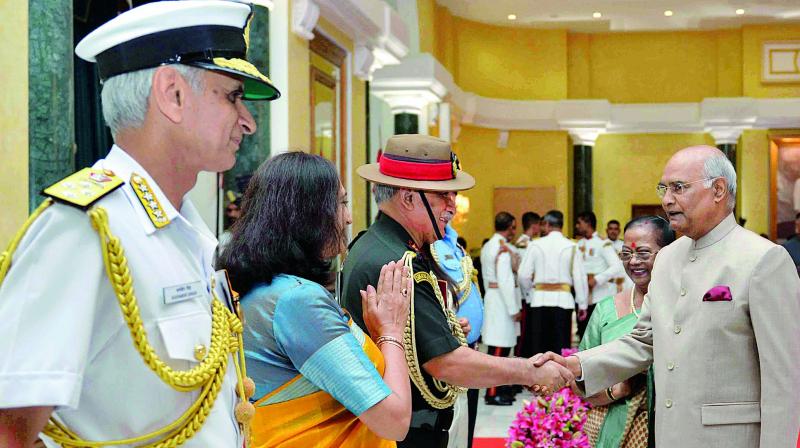India to have CDS, 19 years after it was first proposed

New Delhi: In a landmark military reform, Prime Minister Narendra Modi on Thursday announced that the country will now have a chief of defence staff (CDS) to bring synergy in functioning of the Army, Navy and Air Force, a proposal which was first mooted after the Kargil conflict in 1999.
In a tweet, defence minister Rajnath Singh said the announcement by Modi on the CDS has been made keeping in view the much needed reform to streamline and further improve the coordination among the three forces and their functioning. “CDS will have a long lasting and a positive impact on India's security,” Singh said.
The CDS will be senior to the service chiefs and his primary role will be to work towards increasing operational coordination among the Army, Navy or Air Force and deal with India’s national security with a comprehensive approach, officials said.
The CDS will also act as a single-point military adviser to the Prime Minister and defence minister on key defence and strategic issues. A number of western countries have tri-services chiefs.
Sources said government is in the process of forming a high-level committee to finalise the modalities for appointing the CDS. It is not immediately clear about the tenure of the CDS and whether he will have equal or higher rank than the three service chiefs.
A high-level committee set up to examine the gaps in the country’s security system in the wake of the Kargil war in 1999 had recommended appointment of a CDS with five-star rank.
A group of ministers analysing required reforms in the national security system had also favoured appointing a CDS.
In 2012, the Naresh Chandra Task force had recommended creating the post of a permanent chairman of the Chiefs of Staff Committee.
Under the present structure, the Chairman of the Chiefs of Staff Committee coordinates tri-services issues. The CoSC comprises the Army, Navy and IAF chiefs and the senior-most among them acts as its chairman.
Air Chief Marshal B.S. Dhanoa is currently serving as chairman of CoSC and he is due to retire on September 30. After Dhanoa, Army Chief Gen Bipin Rawat is set to become the chairman of CoSC.
Gen. Rawat is due for retirement on December 31.
If government decides to go by seniority in appointing the CDS, then Gen. Rawat has a bright chance of donning the post, said a senior official on condition of anonymity.
The decision to appoint the CDS is also seen as an indication by the government to set up integrated theatre commands.
There have been deliberations within the government and the three forces on whether India should go for integrated theatre commands where all the manpower and assets of the three services will be under the command of one officer. The US as well as several western countries follow this model.
There were voices within the defence establishment who were in favour of setting up at least two theatre commands — one in western sector for dealing with Pakistan and other in eastern sector to meet any eventuality along the frontier with China.
Though there is no clear indication of whether the government was serious about setting up theatre commands, in April last year, it formed a Defence Planning Committee (DPC) headed by National Security Advisor (NSA) Ajit Doval to prepare a national security strategy with a focus on ensuring convergence among the three forces.
Former Army Chief Gen. (retd) V.P. Malik said the decision to create CDS post will make India’s national security “more effective” as it will ensure multi-disciplinary coordination.
Former Deputy Chief of Army Staff Lt. Gen. (retd) Subrata Saha too welcomed the Prime Minister’s announcement to appoint a CDS.

